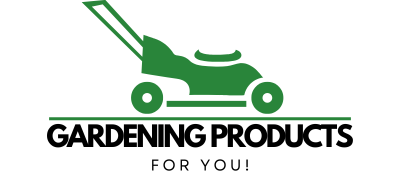Nurturing Nature: A Guide to Plant Nurseries
On 2023-10-03 by Jaimy SellIntroduction
Plant nurseries play a vital role in the world of gardening and landscaping. They serve as the nurturing grounds for a wide variety of plants, from tiny seedlings to mature trees. Whether you’re a seasoned gardener or a novice with a green thumb, understanding the importance of plant nurseries and how to make the most of them can significantly enhance your gardening experience. In this article, we’ll explore the world of plant nurseries, from what they are to how to select the best plants, and even tips for starting your own.
What Is a Plant Nursery?
A plant nursery is a specialized facility where plants are grown and cultivated for various purposes, such as gardening, landscaping, and reforestation. These establishments can vary in size, from small family-owned operations to large commercial enterprises. Plant nurseries play a pivotal role in the propagation and distribution of plants, providing a steady supply of healthy, well-developed specimens to meet the diverse needs of consumers.
Types of Plant Nurseries
- Retail Nurseries:
- These nurseries cater to individual customers and homeowners. They offer a wide range of plants, from annuals and perennials to shrubs and trees, often providing expert advice and guidance to help customers choose the right plants for their needs.
- Wholesale Nurseries:
- Wholesale nurseries typically focus on supplying plants to other businesses, such as landscaping companies, garden centers, and municipalities. They produce large quantities of plants and often offer discounts for bulk purchases.
- Specialty Nurseries:
- Specialty nurseries specialize in specific types of plants, like succulents, orchids, or bonsai trees. These nurseries are a haven for enthusiasts seeking rare or unique specimens.
- Online Nurseries:
- With the rise of e-commerce, many nurseries now operate online. These virtual nurseries allow customers to browse and purchase plants from the comfort of their homes, and the plants are shipped directly to their doorsteps.
Choosing the Right Plants
Selecting the right plants for your garden or landscape is crucial for a successful and enjoyable gardening experience. Here are some tips for making the best choices:
- Local Adaptation:
- Choose plants that are well-suited to your local climate and soil conditions. Native plants are often a great choice as they have adapted to thrive in your region.
- Purpose and Location:
- Consider the purpose of the plant (e.g., ornamental, shade, privacy) and the location where it will be planted. Some plants are better suited for full sun, while others thrive in shade.
- Healthy Specimens:
- Inspect plants for signs of health and vigor. Look for green, disease-free foliage and well-developed root systems. Avoid plants with yellowing leaves or signs of pests.
- Size Matters:
- Choose plants that are appropriately sized for your space. Be mindful of how large a plant will grow at maturity to prevent overcrowding.
Tips for Successful Planting
Once you’ve selected your plants, it’s essential to plant them properly for optimal growth and health:
- Prepare the Soil:
- Ensure the soil is well-prepared by amending it with organic matter and checking its pH level. Proper soil preparation provides a strong foundation for plant growth.
- Plant at the Right Depth:
- Plant your specimens at the appropriate depth, making sure the root ball is level with the soil surface. This helps prevent root rot and promotes stability. Plant Nursery
- Water Wisely:
- Water newly planted specimens thoroughly but avoid overwatering, which can lead to root suffocation. Follow a consistent watering schedule based on your plant’s specific needs.
- Mulch:
- Apply mulch around the base of your plants to conserve moisture, suppress weeds, and regulate soil temperature.
Starting Your Own Plant Nursery
For those with a passion for plants and gardening, starting your own plant nursery can be a fulfilling endeavor. Here are some steps to get you started:
- Research and Planning:
- Learn about the types of plants you want to grow and the market demand in your area. Create a business plan outlining your goals, budget, and strategies.
- Location and Infrastructure:
- Find a suitable location with adequate space, access to water, and appropriate facilities like greenhouses or shade structures.
- Plant Selection:
- Choose the plants you want to propagate and grow. Consider local demand and the availability of resources.
- Legal Considerations:
- Research and comply with any permits, licenses, or regulations required for operating a plant nursery in your area.
- Marketing and Sales:
- Develop a marketing strategy to reach potential customers. Consider selling plants both locally and online to expand your reach.
Conclusion
Plant nurseries are the backbone of the gardening and landscaping industry, providing a wide array of plants to cater to various needs and preferences. Whether you’re a gardening enthusiast looking for the perfect addition to your backyard or aspiring to start your own nursery, understanding the world of plant nurseries is essential for nurturing nature and enhancing the beauty of our surroundings. With the right knowledge and care, you can transform your outdoor spaces into thriving, green havens of natural beauty.
This article is provided by
You may also like
- Ooni Pizza Oven and Patio Heater: The Ultimate Outdoor Cooking and Comfort Combo

- Outdoor Heating and Indoor Plants: Enhancing Comfort and Style in Your Home

- Creating a Pet-Friendly Home with Stylish Decor: Tips from the Pet Shop

- Exploring Ardcarne Garden Centre and Boyle Garden Centre: A Garden Lover’s Guide in Roscommon

- Creating the Perfect Home Sanctuary: Outdoor Heating and Indoor Plants

- Enhancing Your Outdoor Space: Garden Furniture and Pet Shop Essentials

- Enhance Your Outdoor Cooking Experience: Weber BBQ and Pizza Oven

- Bark United Kingdom: Your Go-To Platform for Pet Services
- The Sizzle of Success: Weber BBQs in Ireland
- Title: Enhance Your Garden Oasis: Must-Have Products for Every Gardener
